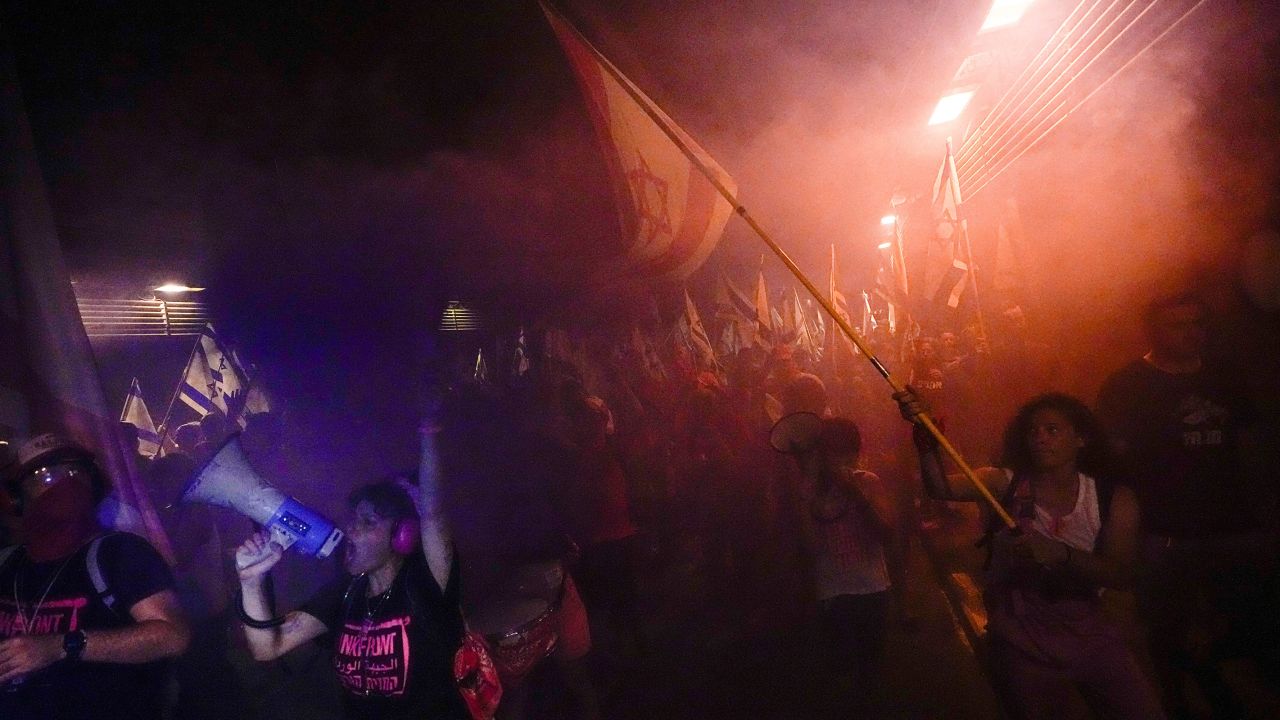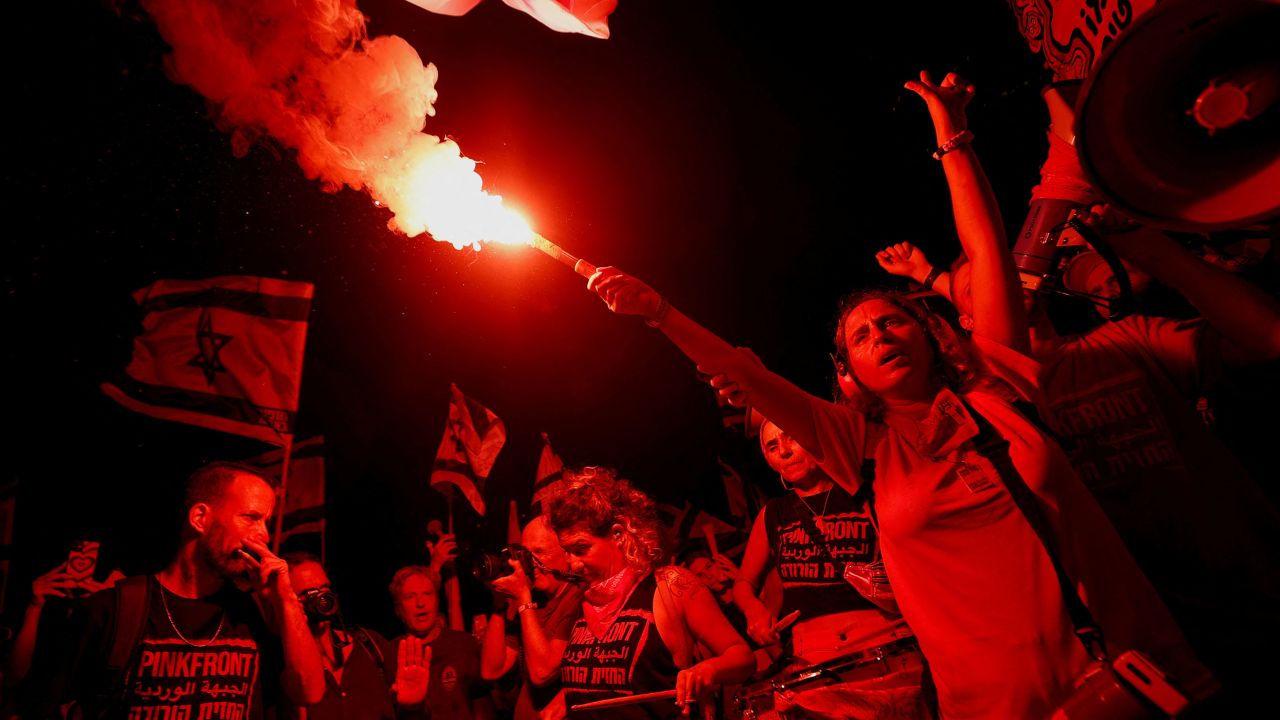
“What you’re talking about is a situation, or potential situation, where in American terms, the United States’ Supreme Court would take a constitutional amendment and say that it’s unconstitutional. That’s the kind of the kind of spiral that you’re talking about, and I hope we don’t get to that,” Netanyahu told CNN’s Wolf Blitzer, warning that the country could enter “uncharted territory.
The law, which would limit the power of Israel’s Supreme Court, is an amendment to one of Israel’s Basic Laws, which exist in place of a formal constitution. It passed the Knesset on Monday despite six months of protests and rare public criticism from the White House.
The Supreme Court has said that it will hear appeals against the law in September.

US President Joe Biden has been unusually outspoken about the judicial overhaul proposal, suggesting it amounts to an erosion of democratic institutions and could undermine US-Israel relations.
Asked if he was expecting consequences from the United States for the bill’s passing, Netanyahu stressed that relations remained strong between the Biden White House and his government – the most far right and religious in Israel’s history.
“Look, we’re both interested in blocking Iran. We’re both interested in advancing peace. This is the reason I came back to serving for the sixth time as Israel’s Prime Minister. I think those goals are achievable, and they’re going to be achieved together between Israel and the United States. I think that will strengthen our alliances. not weaken,” he said.
Netanyahu also pointed to debate in the US over its own Supreme Court. “You have an internal debate in the United States right now, about the powers of the Supreme Court about whether it’s abusing its power, whether you should curtail it,” he said.
“Does that make the American democracy not a democracy? Does that make that debate unworthy? Does that make that that issue, a symbol of the fact that you’re moving to some dictatorship personally?” he said.
Israel’s new law strips the Supreme Court of the ability to reject some government decisions on the basis of the “reasonableness” standard. It was the first of the government’s major judicial reforms to be passed by the Israeli parliament, the Knesset.

The country has no upper chamber of the parliament, but it has a relatively strong Supreme Court. Netanyahu and his supporters argue the court has become too powerful, and that their overhaul would rebalance powers between the judiciary, lawmakers and the government.
“We don’t want a subservient court. We want an independent court, not an all powerful court and that’s the correction that we’re doing,” Netanyahu told Blitzer.
Netanyahu acknowledged however that the bill had sparked “a big debate.”
“I don’t want to minimize it. I also don’t want to minimize the concerns that people have, because many of them have been caught in this spiral of fear,” he said, adding “Israel is going to remain a democracy.”
Opponents say the Supreme Court is the only check on the power of the government and the Knesset, and warn that the reforms would erode Israeli democracy by granting Netanyahu and his government almost unfettered powers.

Critics have also accused Netanyahu of pushing the overhaul forward to protect himself from his own corruption trial, where he faces charges of fraud, bribery and breach of trust – which he has denied.
Would the new law be used to fire the attorney general, currently overseeing the trial? “I can tell you that this is not going to happen because it needs the heads of all the coalition to agree to it and they’re not going to agree to it. It’s not happening,” he predicted.
Thousands of Israeli army reservists – the backbone of the Israeli military – are threatening not to show up for work over the new legislation, but Netanyahu appeared unfazed by the threat. “Yes, there is a big debate, but, and some of the former generals are leading an effort against this reform – That’s okay. It’s a legitimate thing,” he said.
“But in a democracy, the day that… former generals can force … democratically elected officials to stop legislation on this or that matter, I would say that’s the that’s the day that Israel really stopped being a democracy,” he said.
That said, he does not want to “minimize the concerns that people have because many of them have been caught in this spiral of fear,” he added. “Israel is going to remain a democracy. There are checks and balances.”




